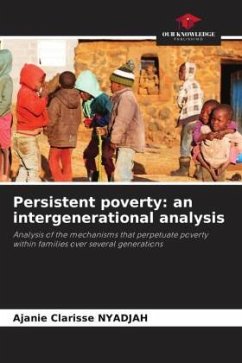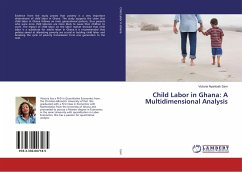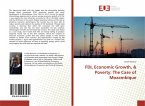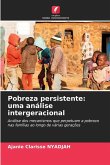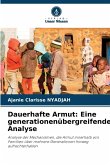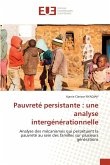This essay analyzes the explanatory determinants of the intergenerational transmission of poverty in Cameroon. From the database of the fourth Cameroonian household survey, the estimation of a quantity-quality interaction model of Becker and Lewis (1973) was adopted with the ordinary probit method and with the non-parametric methods (B-spline and Kernel). The results reveal that economic, social, environmental determinants positively and negatively affect the intergenerational transmission of poverty in Cameroon, due to the choice of the dependent variable. Thus, there is an intergenerational transmission of poverty in Cameroon. As an economic implication, the government must still subsidize the poor and ensure that they benefit adequately, then must intervene more in the educational sector and finally must review salaries and the minimum wage because life is becoming more and more expensive.
Bitte wählen Sie Ihr Anliegen aus.
Rechnungen
Retourenschein anfordern
Bestellstatus
Storno

